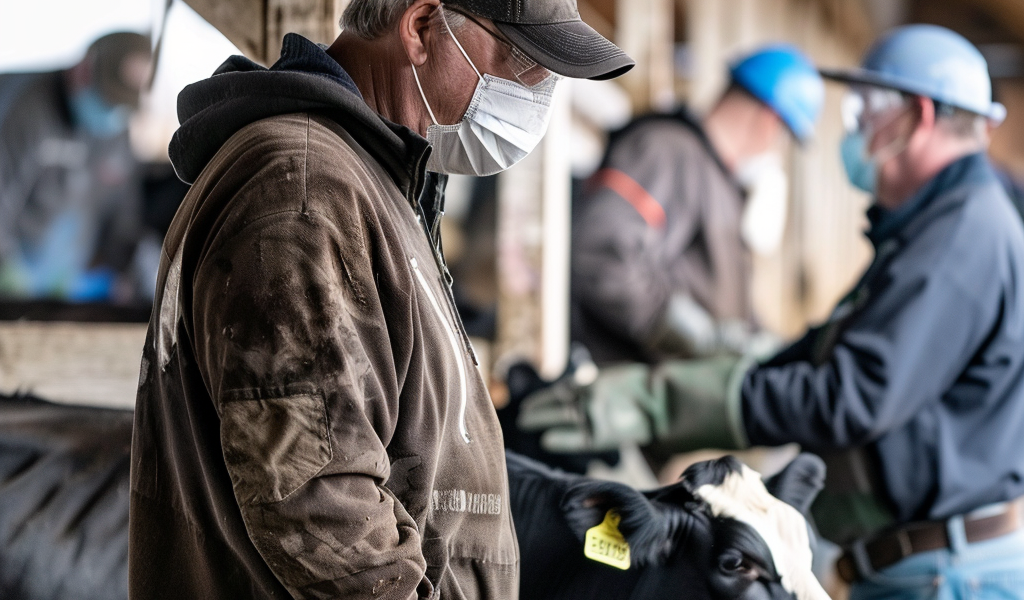In a recent development, Michigan has become a focal point for the Highly Pathogenic Avian Flu, commonly known as bird flu, with 26 herds currently affected by the virus. The most recent case was reported on July 9, 2024, in Gratiot County, raising concerns among state scientists as the virus, typically found in wild birds, is now being detected in dairy cattle, poultry, and even humans.
The Michigan Department of Agriculture and Rural Development (MDARD) took action on May 1st by issuing a stringent bio-security order for dairy farms to prevent further spread of the virus. Dairy farmers in the region have expressed alarm, with one farmer stating that this virus presents the most significant challenge in their 40-year farming career.
The emergence of the avian flu in cattle was first identified on March 29th on a dairy farm in Montcalm County, where the infected cattle had recently been imported from Texas. This novel virus has prompted nationwide efforts by scientists to understand its transmission pathways and prevent its spread.
MDARD Director Tim Boring emphasized the urgency of studying the virus, stating, “What are the transmission pathways? How is it moving from farm to farm?” This ongoing research is crucial to combatting the spread of the avian flu and safeguarding Michigan’s agricultural industry.
Michigan’s role in researching the bird flu outbreak extends to collaborating with the United States Department of Agriculture (USDA) to gather essential data. The state’s farms are playing a vital role in this research, contributing valuable insights into the virus’s impact on cattle and potential risks to human health.
The discovery of the Highly Pathogenic Avian Flu in Michigan’s cattle population underscores the importance of bio-security measures and proactive monitoring to contain the spread of the virus. As scientists continue to investigate this evolving situation, the collaboration between state agencies, farmers, and research institutions remains crucial in addressing the bird flu outbreak and protecting public health.





